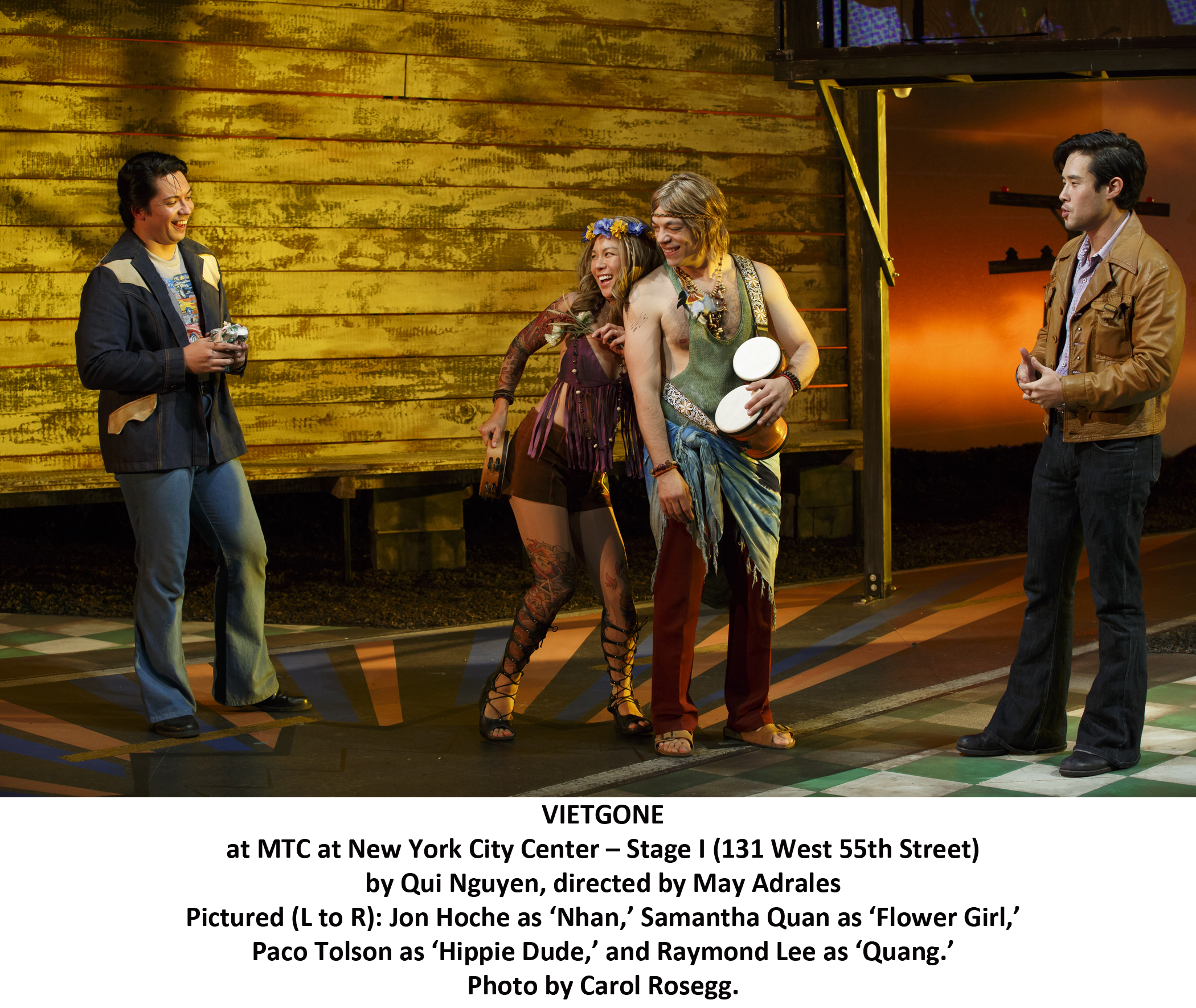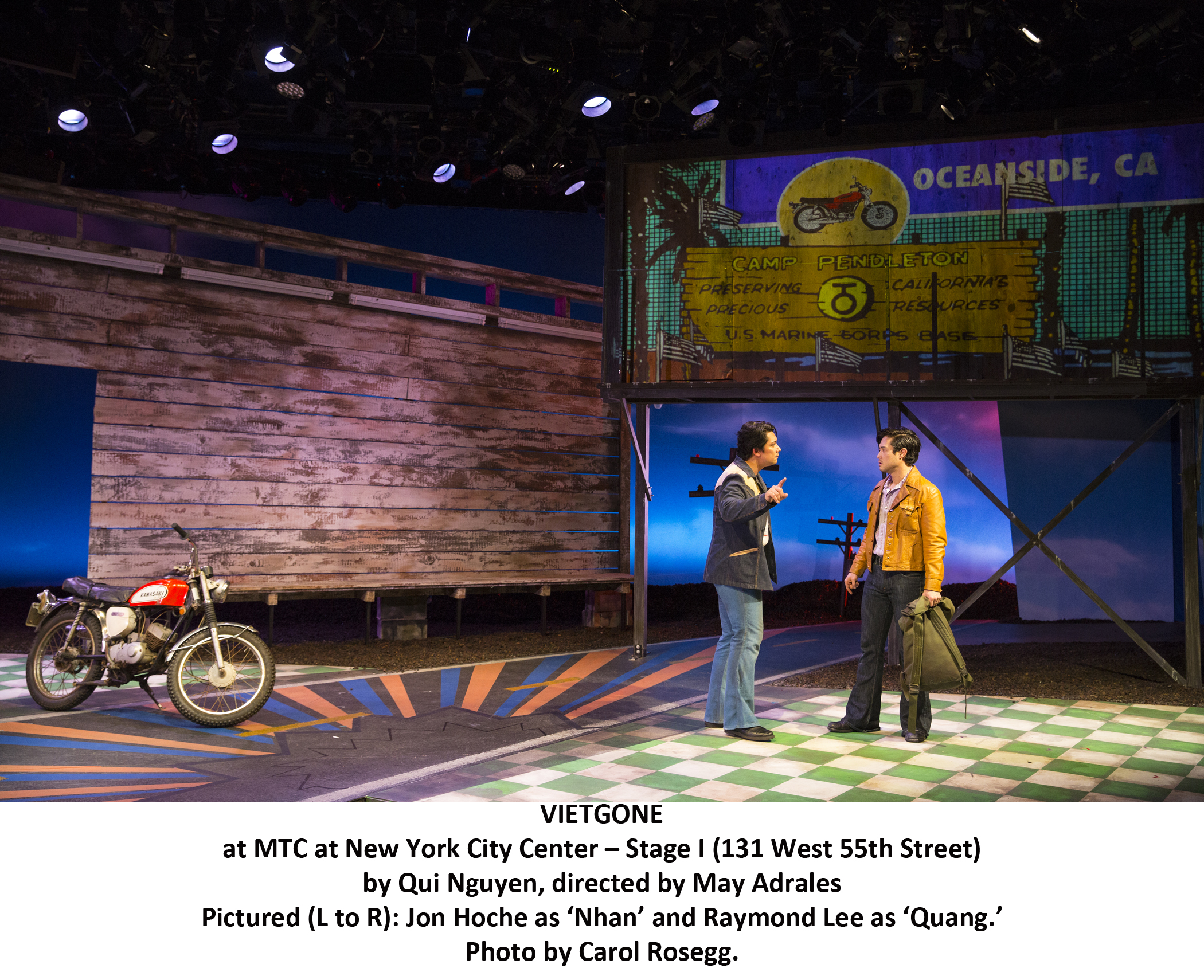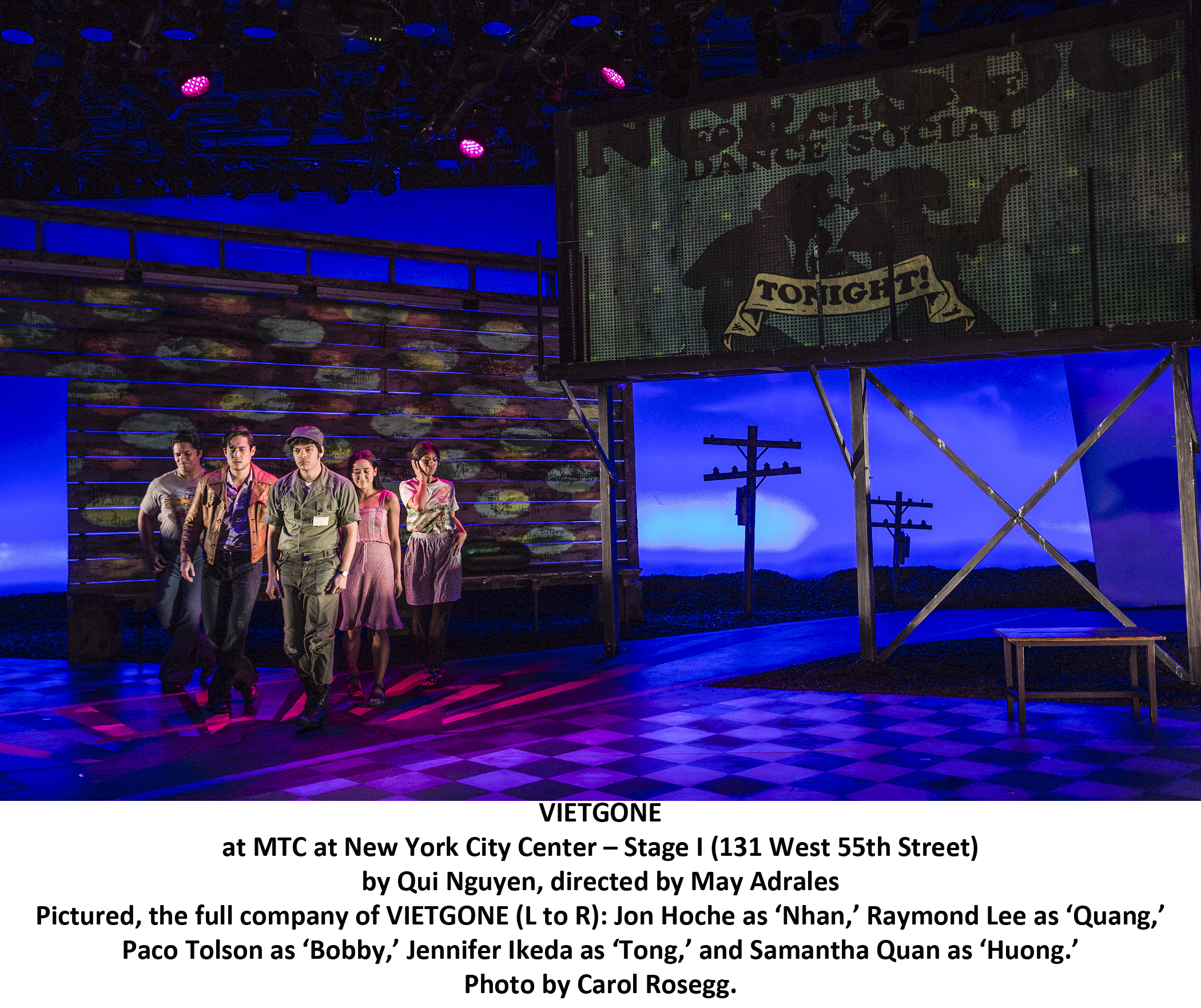Vietgone is an energizing play full of heart wrenching moments and powerful messages. Written by Qui Nyugen and directed by May Adrales, Vietgone is the first live performance of a love war story between two Vietnamese refugees and their tumultuous lives in Middle America. Based on the experiences of the playwright’s parents, it is a classic American war-love story with the Vietnam War as a backdrop. The play is important because the experiences of the refugees of the Vietnam War are often unheard of and are rarely presented in popular media. The play is also important because it features a large Asian American cast of exceptional talent, playing multiple personalities and memorizing many soliloquies, Robert Lee, John Hoche, Jennifer Ikeda, Raymond Lee, Samantha Quan, and Paco Tolson. The central messages of the play such as civil rights, women’s rights and immigrant rights are also resonant with modern-day USA, which is important to inspire change in American society.
Vietgone begins with two main characters, Tong (Jennifer Ikeda), a 30-year-old woman who does not want to get married and lives with her nagging mother and older brother and Quang (Robert Lee), a South Vietnamese pilot soldier fighting with the U.S army. Both characters are in Saigon when suddenly the U.S army starts to pull out and the Vietcong begin to gain a stronghold of the city’s capital. It is chaos as depicted through Quong’s desperation to find his family and Tong’s desperate pleas to persuade her brother to go with her to the U.S. Soon, the play changes its setting to Fort Chaffee, Arkansas where Tong and her mother arrive to a very simple and less than decent lifestyle at the camp. Tong only knowing an elementary level English, manages to speak to Bobby, an American soldier who ends up having a crush on her. Quong and his brother, Nhan (John Hoche), both end up in Fort Chaffee in an unexpected turn of events. Quong also ends up having a crush on Tong. Thus both Quong and Bobby end up in a comical way, competing for Tong’s affections with big gifts of flowers, radios, dancing and fancy dinners. The mother, of course, always interferes and tries to drive them both away from Tong. However, Tong expresses her strong determination to stay a single woman. In her rap, she keeps referring to her strong female agency, as a warrior and survivor of a brutal war. Nonetheless, her unfeigned iron-will is her charm and her relationship with her mom reflects a soft-side of her persona. Quong, despite the comical flirtatious moments, is also in agony missing the family he left behind and decides to go back home to Vietnam. Both characters struggle in coping with nightmares of the war and often have self-doubt but ultimately, they both find a way to reconcile with their past and their future.
The end of the play shows the playwright and his father having a conversation together. The playwright tries to ask his father about the Vietnam War and what he was doing during that time. His father dodges the question by instead telling stories of all the troubles he had raising him. However, the son’s persistence eventually encourages the father to speak up. The father says, “If you want to know about Vietnam, I’ll tell you about Vietnam. If you want to know about the people, I’ll tell you about the people. But about the Vietnam War, go rent a movie. It is too painful for old men like me to remember. For the Vietnamese, we do not want to be remembered as a mistake. We did not choose war. War came to us and we had no choice but to fight. The Vietcong were taking everything we had worked hard for. The war was never a choice for us.”
The result is a well-balanced play with comic relief, ninja action, and heart-wrenching moments that attracts the audience to experience the war through the refugee’s perspective. The play’s perspective is entirely based on the Vietnamese refugees, not the Americans. Therefore, the refugees speak fluent English with all the slang but in their context of the play, they are speaking Vietnamese. The background visuals draws artistic inspirations from contemporary pop culture and the music is mostly rap with a catchy hip-hop beat and uncensored lyrics, reflecting the raw emotions of the characters. The play also does a wonderful job in balancing the important themes of the 1970’s such as civil rights issues, the hippie movement, and the feminist movement. The play is not only an exciting piece to watch but it is also significant piece for American Broadway.





Leave a Reply